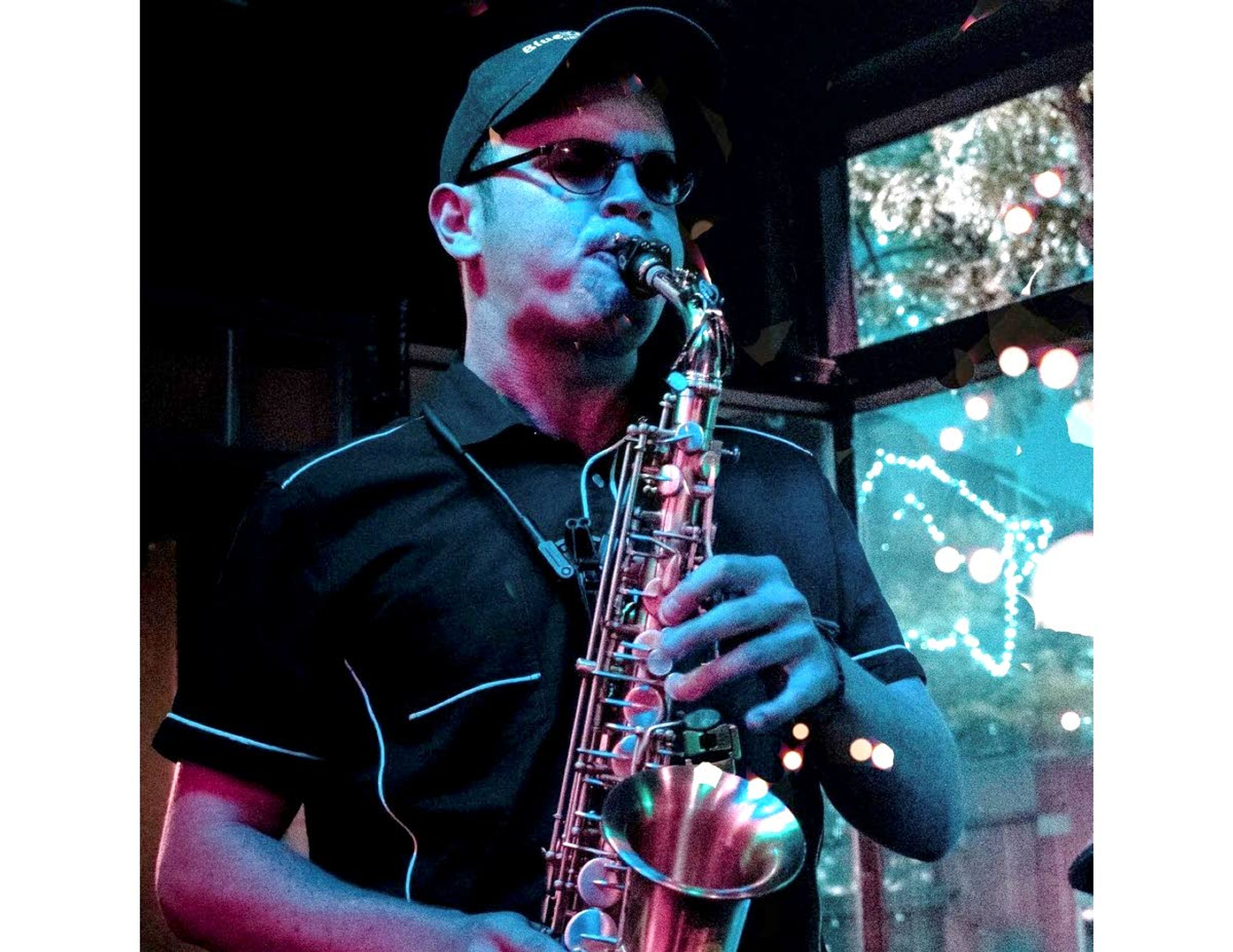Getting back into the groove
Moscow musician sees music as salve for many wounds
Many are wondering how to bring people together to create a more unified world. For Liam Marchant, it begins with a song.
The 21-year-old saxophone player with the Moscow band Pumice Pocket is thinking a lot about how music could help heal the woes of the pandemic and bridge painful gaps between cultures.
Pumice Pocket will play on the outdoor patio Monday night at Moscow Alehouse. As pandemic restrictions ease and live music returns, Marchant and the rest of his band are prepared to help audiences adjust.
“We all want to be there, to be playing entertaining music,” Largant said. “I’ve heard some musicians speculate this may be a ‘Summer of Love.’ It’s a lot of emotions to take in for a lot of people. People have different levels of comfort, and obviously there’s a ton of things to navigate there, but I think having someone confident up on stage telling people, ‘Hey, it’s okay to dance again; do what you need to to be safe,’ will help. I personally encourage people to get vaccinated. I think it’s really important.”
The band — which plays funk-inspired, bossa nova rhythms — is a recent collaboration, featuring Marchant on saxophone and keyboard, K.C. Isaman on bass, Wyatt Hurst on keyboard and percussion, and Chris Ward on drums. Its name refers to its mission to “exfoliate any musical ailment an audience finds itself in.”
Originally from Boise, Marchant is studying music at the University of Idaho. He recently was awarded the Presser Foundation Undergraduate Scholar Award, a $4,000 award recognizing his academic and musical accomplishments. One of Marchant’s interests is ethnomusicology, a field that traces music to its historical roots. His latest project is a digital initiative to create an archive to help preserve traditional music of the Republic of Ghana in West Africa.
Historically, music from Africa has been clumped together in the Western world, he said. Instead of recognizing individual musicians or composers from specific regions, it falls under broad terms like “music from West Africa.” Marchant believes it is important to amplify the individuals and recognize cultural and regional differences. Tracing the sounds back through time, the origins of samba, jazz and reggae all can be found in Africa, he said. While seeing this rhythmic path on a map can reveal some uncomfortable facts, “I think it can ultimately unite the world musical neighborhood we live in,” he said.
Ghanian music is influenced by many different ethnic groups. There is no word for music in most of the languages of Ghana, according to scholar Paschal Yao Younge. Instead, music is a “cultural realization of a dance or gathering,” Marchant said.
“I’m not going to pretend I have an understanding of this close relationship between dance and music, but dance is pivotal to experiencing the music.”
Compare this to American culture, and other beliefs are revealed, he said.
“I think that in American culture, there’s such an obsession with: If you’re not good, you shouldn’t do it. If you said in Ghana you couldn’t sing, I think people would feel really sorry for you and think you had a bad medical condition. One of the things I’m starting to appreciate from studying Ghanian music and dance is just do it, just have fun and be respectful. Take away the societal pressure that says, ‘I’m not an incredible singer so I can’t sing.’ ”
The planned digital archive preserving Ghanian music is a joint project between the University of Idaho and the University of Oregon in Eugene. Marchant is working with UI professor Barry Bilderback; Olivia Wikle, a UI digital librarian; and Habib Iddrisu, a UO professor, musician, dancer and president of the Agoo-Bi Nii Cultural Arts Center in Ghana.
Besides preserving the music, Marchant hopes the project will make it more accessible to music lovers everywhere.
“I really believe people want to hear music from all over the world. They just don’t know what to put in the search bar.” !
IF YOU GO
WHAT: Pumice Pocket.
WHEN: 7-9 p.m. Monday.
WHERE: Moscow Alehouse, 226 W. Sixth St., Moscow.
COST: Free.
LEFT: Liam Marchant plays saxophone with Pumice Pocket.









